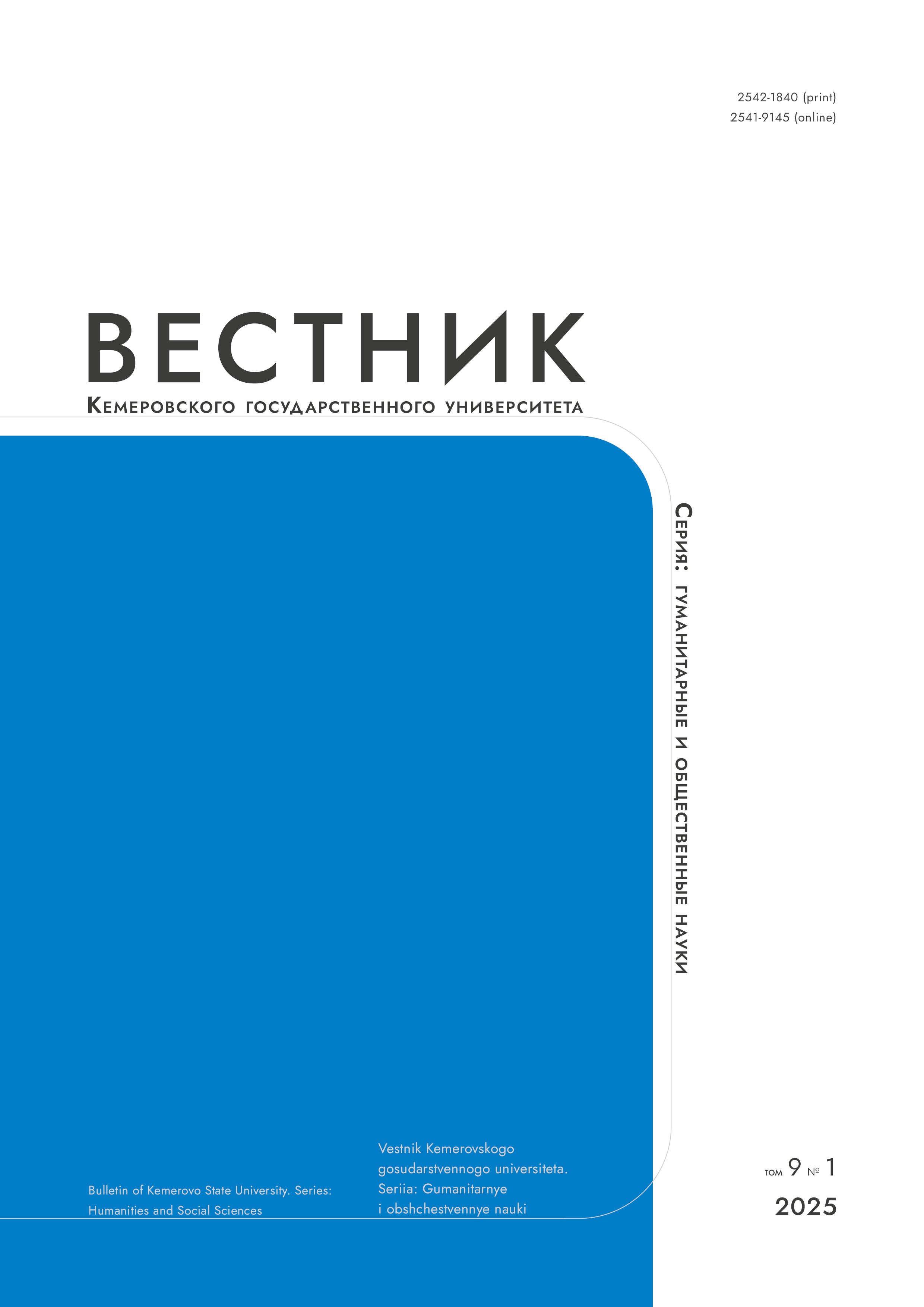Moscow, Russian Federation
School No. 508
Moscow, Russian Federation
The article focuses on the theoretical and practical issues of metalinguistic skills in primary school children. Metalinguistic activity is an important parameter of linguistic personality assessment since its analysis can reveal various language impairments. The authors described the metalinguistic level of third-grade primary school students with general speech underdevelopment and specified the phonological, morphological, syntactic, and pragmatic components for each level. The research was based on such cognitive operations as identification, analysis, synthesis, and generalization. The obtained statistics on the interrelation of metalinguistic components made it possible to develop a typology of phonological and morphological exercises based on practicing the corresponding cognitive operations. The article outlines the main directions of speech therapy, which may be of interest to primary school teachers and speech therapists.
children with language impairment, specific language impairment, speech therapy, primary school age, metalinguistic awareness, cognitive operations
1. Almazova A. A. Opportunities for implementing anthropocentric approach to the language mastering in modern speech therapy. Nauka i shkola, 2019, (1): 78-83. (In Russ.) EDN: https://elibrary.ru/BQSOSW
2. Almazova A. A., Savvidi M. I. Question about the study of metalanguage activities of primary school students. Actual problems of special and inclusive education: Proc. Intern. Sci.-Prac. Conf. "57th Eusebian Readings", Saransk, 15-16 Apr 2021. Saransk: MSPU, 2021. (In Russ.) EDN: https://elibrary.ru/XCEIOK
3. Solncev V. M. Language as a system-structural formation. 2nd ed. Moscow: Nauka, 1977, 341. (In Russ.)
4. Karlov V. A., Shklovskiy V. M., Zolovkina V. S. The development of ideas about the organization of the speech system. Zhurnal Nevrologii i Psikhiatrii imeni S. S. Korsakova, 2017, 117(5): 4-8. (In Russ.) https://doi.org/10.17116/jnevro2017117514-8
5. Vander Stappen C., Van Reybroeck M. Phonological awareness and rapid automatized naming are independent phonological competencies with specific impacts on word reading and spelling: an intervention study. Frontiers in Psychology, 2018, 9. https://doi.org/10.3389/fpsyg.2018.00320
6. Schiff R., Saiegh-Haddad E. Development and relationships between phonological awareness, morphological awareness and word reading in Spoken and Standard Arabic. Frontiers in Psychology, 2018, 9. https://doi.org/10.3389/fpsyg.2018.00356
7. Manolitsis G., Grigorakis I., Georgiou G. K. The longitudinal contribution of early morphological awareness skills to reading fluency and comprehension in Greek. Frontiers in Psychology, 2017, 8. https://doi.org/10.3389/fpsyg.2017.01793
8. Van Reybroeck M. Grammatical spelling and written syntactic awareness in children with and without dyslexia. Frontiers in Psychology, 2020, 11. https://doi.org/10.3389/fpsyg.2020.01524
9. Deacon S. H., Kieffer M. J. Understanding how syntactic awareness contributes to reading comprehension: evidence from mediation and longitudinal models. Journal of Educational Psychology, 2018, 110(1): 72-86. https://doi.org/10.1037/edu0000198
10. Tonga X. Mcbride C. A reciprocal relationship between syntactic awareness and reading comprehension. Learning and Individual Differences, 2017, 57: 33-44. https://doi.org/10.1016/j.lindif.2017.05.005
11. Andrés-Roquetal C., Katsos N. The contribution of grammar, vocabulary and theory of mind in pragmatic language competence in children with autistic spectrum disorders. Frontiers in Psychology, 2017, 8. https://doi.org/10.3389/fpsyg.2017.00996
12. Metalinguistic awareness in children: theory, research, and implications, eds. Tunmer W. E., Pratt C., Herriman M. L. Berlin-Heidelberg-N. Y.-Tokyo: Springer-Verlag, 1984, 238. https://doi.org/10.1007/978-3-642-69113-3
13. Bialystok E. Symbolic representation and attentional control in pragmatic competence. Interlanguage pragmatics, ed. Kasper G., Blum-Kulka Sh. N. Y.-Oxford: Oxford University Press, 1993, 43-64.
14. Karmiloff-Smith A. From meta-processes to conscious access: evidence from children's metalinguistic and repair data. Cognition, 1986, 23(2), 95-147. https://doi.org/10.1016/0010-0277(86)90040-5
15. Gombert J. E. Metalinguistic development in first-language acquisition. Encyclopedia of language and education. Vol. 6: Knowledge about language, eds. Van Lier L., Corson D. Dordrecht: Springer, 1997, 43-51. https://doi.org/10.1007/978-94-011-4533-6_5
16. Vorobeva T. A. On the issue of differentiating children's metalinguistic activity and their language reflection. Izv. RGPU, 2020, (196): 61-68. (In Russ.) https://doi.org/10.33910/1992-6464-2020-196-61-68
17. Zhinkin N. I. Psychological foundations of speech development. Vestnik prakticheskoi psikhologii obrazovaniya, 2012, 9(4): 39-41. (In Russ.)
18. Sarkisova E. V. Modeling of the process of identification of an unknown word. Vestnik Tverskogo gosudarstvennogo universiteta. Seriia: Filologiia, 2014, (2): 346-351. (In Russ.) EDN: https://elibrary.ru/SXTBIF
19. Ushakova T. N. Speech: origins and principles of development. Moscow: Per Se, 2004, 256. (In Russ.) EDN: https://elibrary.ru/SGUWZN
20. Jakobson R. O. Linguistics and poetics. Structuralism: "for" and "against", eds. Basin E. Ia., Poliakov M. Ia. Moscow: Progress, 1975, 193-230. (In Russ.)
21. Zalevskaya A. A. Introduction to psycholinguistics. Moscow: Direkt-Media, 2013, 561. (In Russ.) EDN: https://elibrary.ru/SULSGB
22. Babina G. V., Sharipova N. Yu. Structural and syllabic organization of speech of preschoolers: ontogenesis and dysontogenesis. Moscow: Prometei, 2013, 192. (In Russ.) EDN: https://elibrary.ru/SDTQWV
23. Rubinshtein S. L. Fundamentals of general psychology. St. Petersburg: Piter, 2018, 713. (In Russ.)
24. Gribova O. E. Shaping the grammatical structure of speech in students with speech impairments. Russian language at school for children with severe speech disorders, eds. Almazova A. A., Seliverstov V. I. Moscow: VLADOS, 2011, 196-203. (In Russ.) EDN: https://elibrary.ru/SDSQZJ
25. Galperin P. Ya. Introduction to psychology. Moscow: Un-t, 1999, 332. (In Russ.)





















